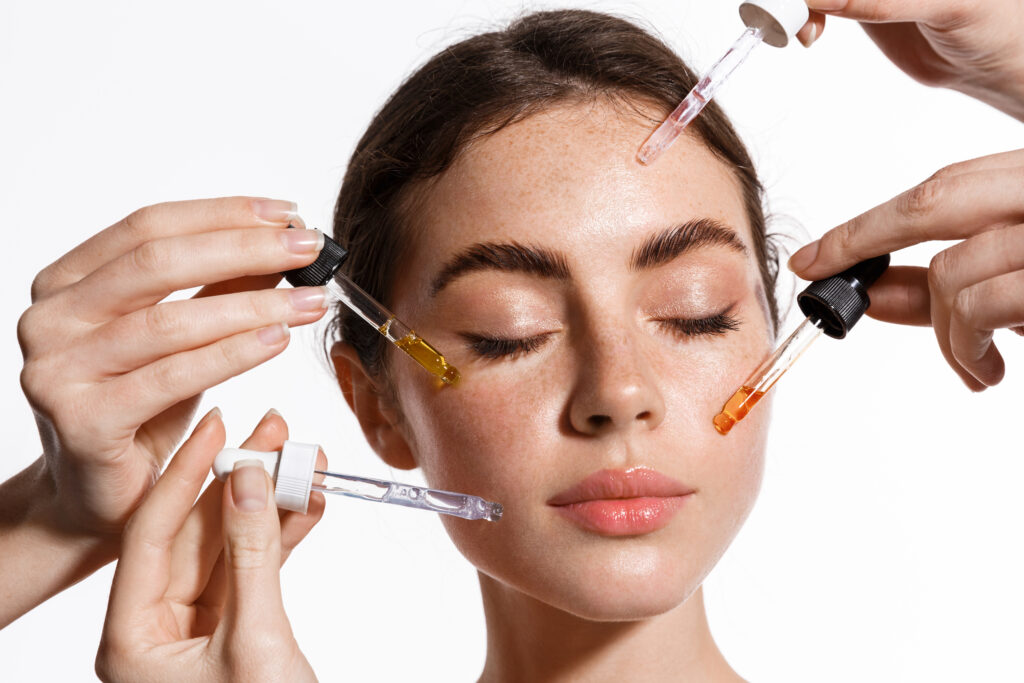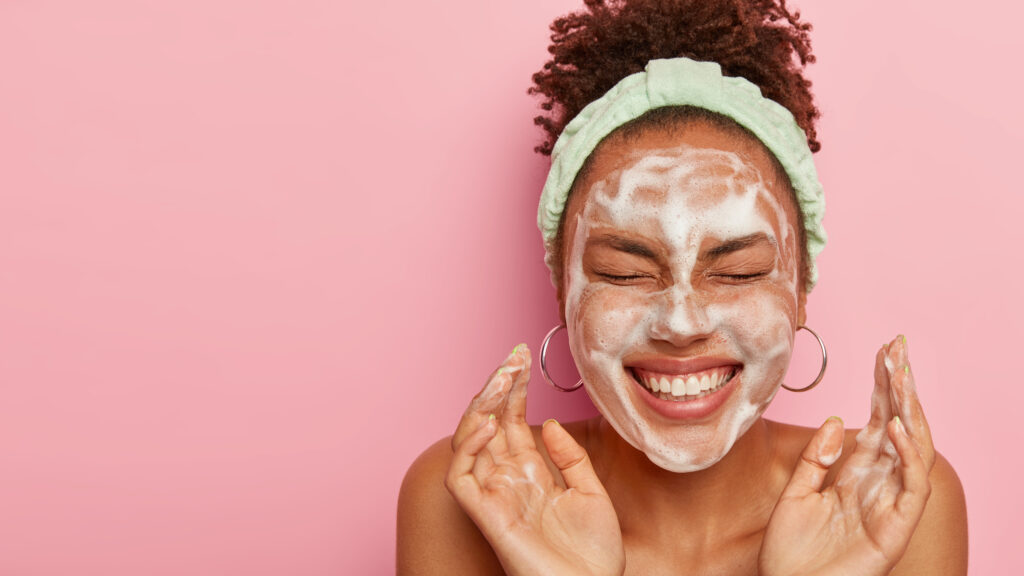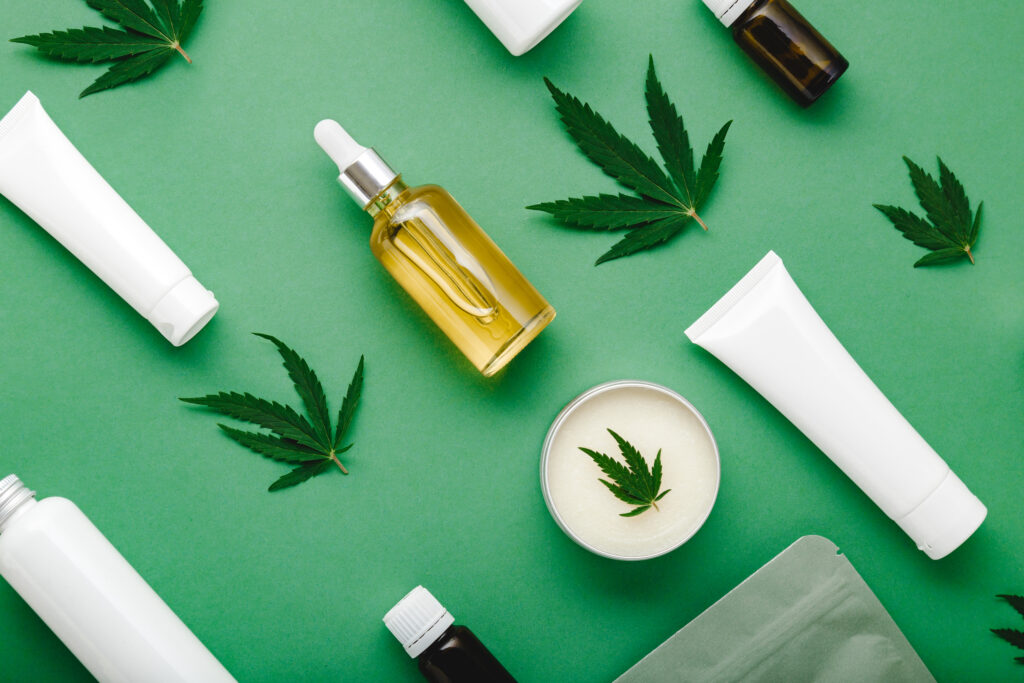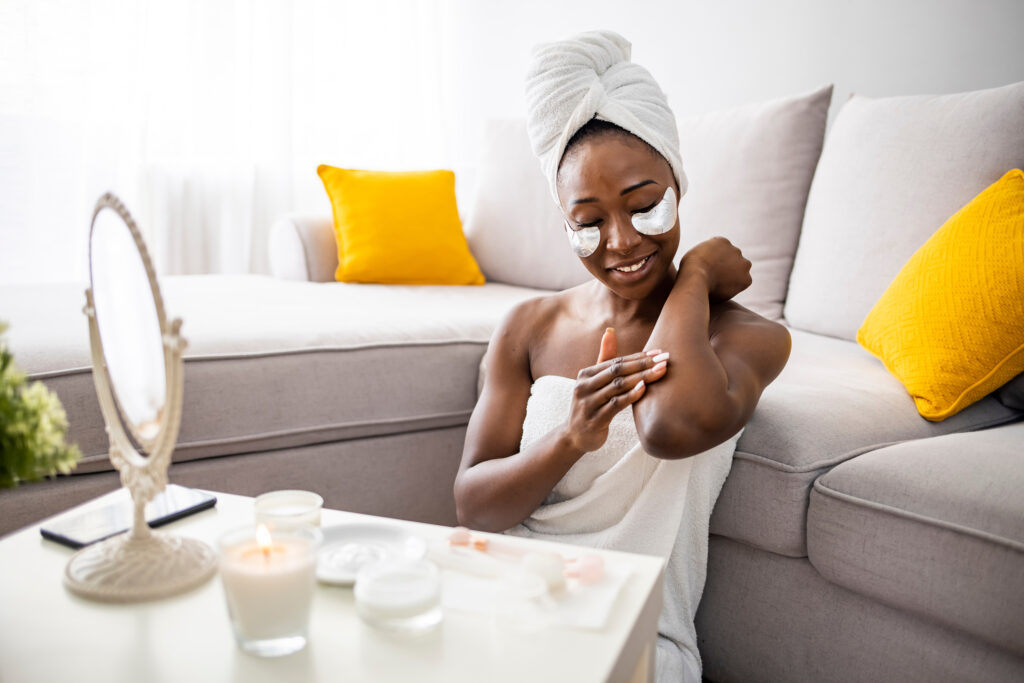
With a market size of $698.8 million in 2019, it’s no secret that CBD skin care products have taken off over the last few years. The diversity of CBD products within this market is endless, from body lotions and balms to face masks and bath bombs. You could quite literally soak your whole body in CBD and moisturize with CBD afterward if you so chose to!
But are CBD skin care products worth the hype? Is there more than meets the eye with this anti-inflammatory, antioxidant, non-psychoactive cannabinoid?
CBD Topicals For Inflammation, Dry Skin, and More
Your skin is the largest organ in your body. While you may not pay much mind to its function throughout your daily life, your skin serves as a vital, mechanical barrier against the threats of the outside world on a constant basis.
Naturally, serving as the front line of defense and protecting you from the environment leaves your skin vulnerable to inflammation, dryness, and scarring. Your genetics also play a role in determining your skin health and condition. Some individuals may have very dry, sensitive skin, while others have naturally oily skin.
According to a review article by Sivesind et al., several studies have investigated the efficacy of both topical and oral cannabinoid consumption for alleviating dermatological (skin) disorders. Various studies on CBD topicals specifically have yielded positive results for the following conditions:
- Atopic Dermatitis (Eczema): Participants in these trials had improvements in transepidermal water loss (a reduction in the amount of water evaporating from their skin). They also reported significant reductions in their eczema after a 3-month treatment period.
- Psoriasis Vulgaris: Two small-scale studies reported significant reductions in psoriasis plaques among all participants by the end of the 90-day trial.
- Scalp Psoriasis & Eczema: Participants in these studies experienced a reduction of inflammation, itching, and burning for both scalp psoriasis and seborrheic dermatitis (scalp eczema) by day 14 of the trial.
- Calciphylaxis: Calciphylaxis is an uncommon skin condition that causes calcium to accumulate within the small blood vessels of skin and fat tissue. A formulation of topical CBD and minimal THC was applied to the participants’ skin throughout the trial. Within a year, wound closure was achieved in 90% of all participants.
- Epidermolysis Bullosa: Epidermolysis Bullosa is a rare skin condition that causes blisters to appear. Topical CBD was applied to six pediatric patients with epidermolysis bullosa. “All patients experienced a reduction in blisters by at least 50%, with improved wound healing and decreased use of opioid analgesics,” the review states.
No adverse events were reported for any of the CBD topicals applied in these trials, either.
Can CBD Reduce Acne?

Ah, acne — or as it’s often lovingly referred to as, pimples. The age-old problem that’s commonly chalked up as “just a teen dilemma.” The truth is, you’re never too old to get acne. And if you have acne, you’re not alone. Acne is the most common skin condition in the U.S., affecting about 85% of people between the ages of 12 to 24 years old.
Pimples arise when your sebaceous glands (hair follicles) become clogged with sebum — an oily substance composed of fatty materials and debris from your skin cells.
But the pimple itself isn’t just the result of a clogged pore or follicle. Acne occurs when the clogged pores become inflamed. Thus, acne is an inflammatory disorder. And what is CBD? Anti-inflammatory.
In another review article, the authors assess the results of several studies on the efficacy of treating acne with CBD. The studies cited within the review demonstrate that CBD prevented excess lipid synthesis in sebocytes (sebum-producing cells in your skin).
These studies also demonstrated that CBD could reduce the anti-inflammatory cytokines within the sebocytes. Overall, these results show that CBD can prevent excess sebum production and reduce inflammation — the two factors that promote acne to appear in the first place.
Thus, CBD may alleviate acne without the troublesome side effects associated with traditional acne treatments, such as retinoids and antibiotics.
Can CBD Help Alleviate Eczema and Psoriasis?
As mentioned above, several studies have yielded positive results while treating patients with eczema and/or psoriasis with oral and topical CBD.
The potential efficacy of CBD on eczema and psoriasis is primarily owed to the anti-inflammatory properties of the cannabinoid. The anti-inflammatory effects of CBD help alleviate redness and irritation when applied to the area affected by eczema or psoriasis.
Topical CBD products are also highly moisturizing, which helps reduce dryness and itching. As someone who’s had eczema on the back of my neck for as long as I can remember, I’ve experienced the most relief when applying CBD creams to the pesky patch of dry, flaky skin.
CBD Lotions vs. Balms
The CBD skin care market is massive — and even that feels like an understatement. There are so many different types of CBD topicals available, it’s difficult to decide which formulation is suitable for you.
Generally speaking, balms and salves are thicker, oily, and highly moisturizing. They have a heavier texture but are absorbed rather quickly into your skin. Cannabinoids, such as CBD, bind much better to fats, which make some balms and salves stronger than lotions.
Lotions and creams are water-based and have a lighter, fluffier texture. Although cannabinoids bind better to fats, some cannabinoid creams use nanoemulsion technology to make CBD water soluble — and, therefore, are better absorbed by your skin.
At the end of the day, though, it boils down to preference. If you prefer a lighter, fluffier texture, opt for a lotion or a cream. On the other hand, if you prefer a thicker, more oily/waxy texture, opt for a salve or a balm.
Lastly, if you’re using CBD topicals to treat dry, flaky, or wounded skin, opt for products that are not menthol infused. Menthol-infused CBD products are designed for enhanced pain relief. But if the skin is broken or particularly sensitive, menthol-infused creams may cause further irritation.
How to Use CBD Skin Care Products

CBD skin care and topicals can be applied directly to the affected area that you’re looking to treat. For dry, itchy, or inflamed skin on your body, apply the topical to the area and give it a few minutes to soak in. You can reapply the CBD topical as needed throughout the day.
For acne, use the CBD facial cream or facial wash as instructed on the packaging (i.e., once per day, twice per day). Some facial creams and washes may specify whether they’re designed for daytime or nighttime use.
Will CBD Topicals Make You Feel “High”?
CBD does not have psychoactive effects. Therefore, you won’t feel “high” from CBD products, let alone CBD topicals.
Additionally, most cannabinoid topicals are not designed to cross the blood-brain barrier. Even if they have THC in them, you won’t have to worry about feeling “high” from THC or 1:1 CBD:THC lotions, creams, balms, or salves.
Key Takeaways: CBD Topicals May Alleviate Dry, Itchy, Inflamed Skin

Acne, eczema, and psoriasis are some of the most common skin conditions in the U.S. While each differs from one another, they all result from the same culprit: inflammation.
CBD and other cannabinoids have anti-inflammatory, antioxidant, anti-bacterial, and itch-relieving properties that have piqued both public and scientific interests in their potential to alleviate inflammatory skin conditions.
Along with the boom in CBD topicals and skin care products on the market, there’s been a rise in research on the efficacy of CBD for alleviating acne, eczema, and psoriasis. Thus far, studies on CBD topicals have yielded positive results with little to no adverse events reported.
References
- Grandview Research. (2019). Global CBD Skin Care Market Size Report, 2020–2025. https://www.grandviewresearch.com/industry-analysis/cbd-skin-care-market
- Sivesind, T. E., Maghfour, J., Rietcheck, H., Kamel, K., Malik, A. S., & Dellavalle, R. P. (2022). Cannabinoids for the Treatment of Dermatologic Conditions. JID Innovations, 2(2), 100095. https://doi.org/10.1016/j.xjidi.2022.100095
- Moini, J. (2019). Anatomy and Physiology for Health Professionals (3rd ed.). Jones & Bartlett Learning.
- Peyravian, N., Deo, S., Daunert, S., & Jimenez, J. J. (2022). The Anti-Inflammatory Effects of Cannabidiol (CBD) on Acne. Journal of Inflammation Research, Volume 15, 2795–2801. https://doi.org/10.2147/jir.s355489